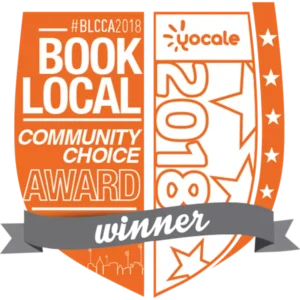As a result of this crisis and pandemic, we have been collectively impacted by this world we live in. There are many tragedies that have come with this, but as a positive outcome we have grown closer. We are sending and receiving messages of healing, sharing stories of hurt, acknowledging that each other is the same place now. But a bigger question remains to all of us, how can I remain connected and stay emotionally safe right now in all this?
Keeping It Real in Unreal Times
As scary as it can be right now, we must consider the authentic nature of ourselves. If we want to foster positive connections with each other, we have to show up as ourselves. It may look different but it is still possible to engage with others where you can feel seen without judgement. Maybe it is an online support group, a group of friends posting in one place or participating in video or phone counseling. It’s ok! Say you’re scared, you can’t sleep, or you need a resource – reach out! We all are experiencing some level of distress.
By choosing to be vulnerable and authentic with those we trust, or whom we want to build more, we have greater connection to each other and this world. Trust often builds as those intimacies are shared in real ways.
Taking these ideas into consideration I have gathered some helpful tips to ensure each of us continue to stay connected in an authentic manner. Below are ways to increase authenticity and vulnerability in your trusted relationships in this pandemic.
Connecting with Authenticity During COVID-19 Pandemic
- Be brave.Don’t be scared or shy to share how you are doing right now with those you trust. Remind yourself others are there for you and want to know if you’re struggling.
- Be mindful. Try not to compare your experiences with others. We can all have different feelings that co-exist simultaneously. Anger, sadness, shame, fear, joy, rest, retreat – they show up at different times for us all but are happening. We are collectively grieving.
- Be honest. Share what YOU feel right now, just do it. Really tell them. Listen to yourself and hear what you say and need. Maybe it is a phone call or a note if it can’t be in person. Say it out loud.
- Be vulnerable. Vulnerability is not all or nothing. No boundaries with sharing about the situation can heighten anxiety or increase fears. Have some, but allow for honest sharing with balancing your intake and output. Share or find ways to connect about things coming back to reduce shame.
- Be open. Try a new relationship routine with those you love. It may take different models and tries but take the time to fine tune what works best for you and them.
- Be patient. Practice patience with yourself and others as best you can. Some may still need time to be vulnerable in a trying time. Emotional safety can be different for all .
- Be purposeful. Increase your ‘relationship self-care’. Find times to share stories of healing with a loved one, calming experiences that promote authentic vulnerable connection. Share a funny childhood memory, sometimes you’re proud of overcoming. Share time where it’s just’ being together.
- Be compassionate. Find deep compassion towards yourself or others now, as we can regress in steps that were taken for recovery in any direction. If you are doing “what you used to do again” then, it’s time to be kind and realize the world feels unsafe, we may go back to “old” patterns to help us feel “better”. Don’t berate yourself for it, just try one day at a time.
It is our humanity that connects us just by existing together. Nothing is perfect, everything is far from that. Practice being really real with yourself and those you care for. We can keep finding the reward, it is huge. Try sharing, expanding, or helping another grieve, create space and just be together.
Wishing you more authentic and vulnerable connections anywhere you sit, as you navigate the radical changes in our world. Continue to have hard conversations with yourself and each other. They mean everything.
 About Jennifer Rego, MSW, LICSW
About Jennifer Rego, MSW, LICSW
Jennifer is a psychotherapist with over sixteen years of experience in the mental health field based in Massachusetts. She provides individual and family counseling, movement-based healing, clinical supervision and facilitates various workshops in the community with other multi-disciplinary professional providers.


